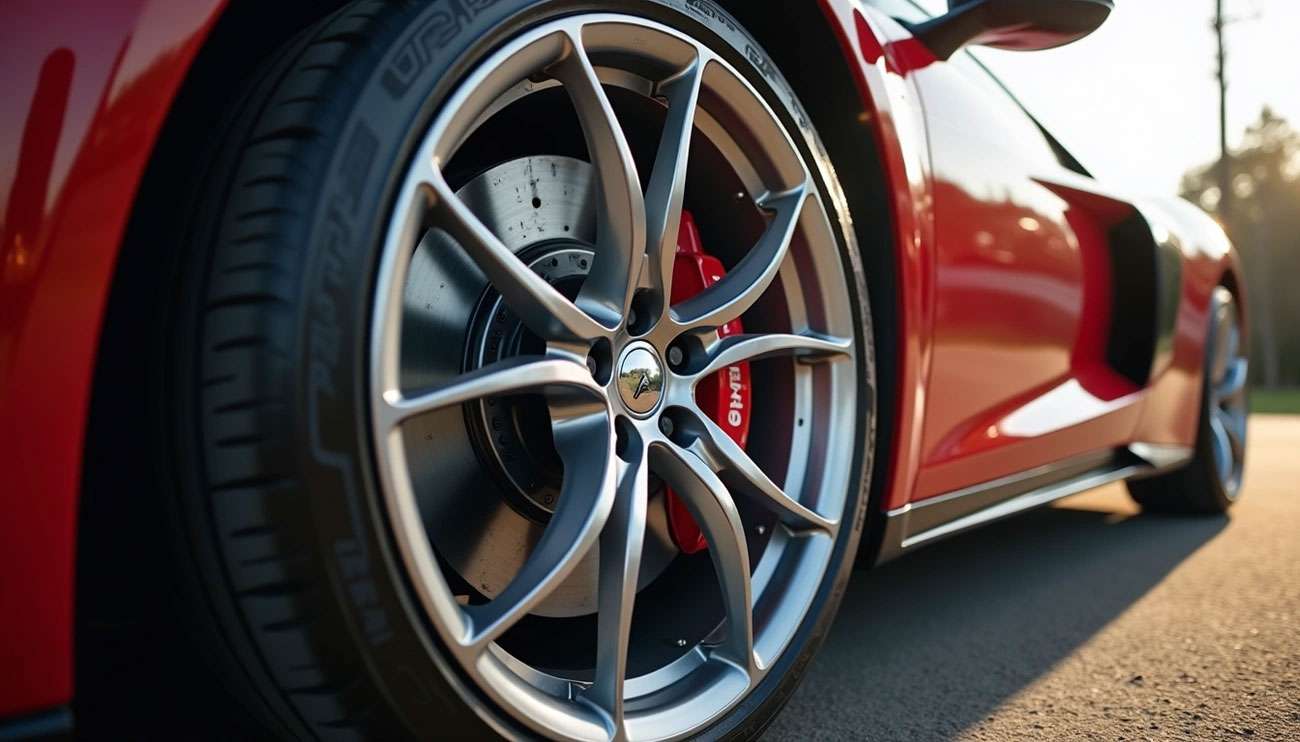
Custom wheels deliver far more than just stunning appearance. Reducing wheel weight by just 12 pounds per corner can improve your 0-60 mph acceleration by 0.29 seconds. This performance boost explains why smart drivers invest in these essential components that do so much more than look good.
What exactly are car rims, and how do they impact your vehicle? While many people use "wheels" and "rims" interchangeably, rims specifically refer to the outer edge where your tire mounts. They serve crucial functions that directly affect your driving experience, from supporting tire structure to maintaining proper air pressure. A standard wheel assembly on pickup trucks handles approximately 900-1,200 pounds per corner, while premium aftermarket wheels can support up to 2,500 pounds per wheel.
Your choice of rim size and material makes a real difference behind the wheel. Standard rim sizes range from 15 to 20 inches, with larger rims creating bigger contact patches between your tires and the road for improved stability and handling. Material selection affects both strength and performance—steel offers exceptional durability at budget-friendly prices, while alloy wheels provide lighter weight for smoother handling and better fuel efficiency.
We'll guide you through the functional benefits of different rim types, explore what drives the passion for wheel customization, and help you determine when and how to upgrade these vital components of your vehicle.
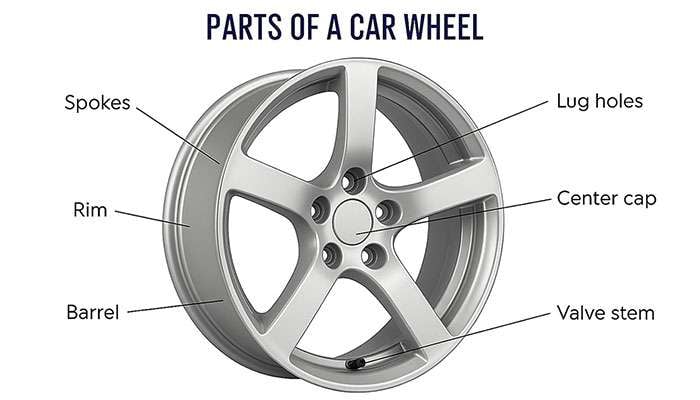
Many drivers throw around terms like "nice rims" when talking about wheels, but these essential components do far more work than most people realize. Understanding what rims actually are and how they function helps explain why they're worth the investment.
The terms "wheels" and "rims" aren't actually interchangeable, despite common usage. The rim forms just one part of a complete wheel assembly. A wheel consists of three main components: the hub (center section that mounts to your vehicle), spokes (extending from hub to outer edge), and the rim (outer circumference where the tire sits).
When we talk about rims specifically, we're referring to that outer edge where your tire mounts. Rims feature a specialized U-shaped cross-section with a deeper center than the edges, engineered precisely to support the tire bead. This design creates the airtight seal that modern tubeless tires require.
Car enthusiasts have adopted "rims" as slang for the entire wheel, especially when discussing aftermarket options. However, automotive professionals maintain the technical distinction.
Rims perform several critical functions that directly impact your safety and driving experience. They create the foundation for everything your tires do.
The rim provides the mounting surface where your tire connects to your vehicle. That specialized U-shaped design supports the tire bead, keeping everything properly seated and preventing movement during driving.
More importantly, rims maintain the airtight seal that tubeless tires need to function. The precise engineering of rim edges prevents air leakage during normal operation. When a rim gets damaged from potholes or curb strikes, this seal breaks down, causing problems like constant air loss, steering vibration, or handling issues.
Rims also serve as your tire's first line of structural defense. When you hit bumps or obstacles, the rim absorbs much of the impact after it passes through the tire. This is why rim condition directly affects both safety and performance.
Both rim size and material choice significantly impact how your vehicle performs. Each wheel supports thousands of pounds when you factor in vehicle weight, passengers, and cargo.
Rim size affects multiple aspects of your driving experience:
• Larger rims with low-profile tires typically improve handling but create a firmer ride • Rims that are too wide for your tire can cause excessive vibration and reduced comfort • Rims that are too narrow allow tires to distort during cornering, reducing handling performance
Material selection depends on what you prioritize:
Steel Rims — The most affordable option, exceptionally durable and easy to repair. The tradeoff is extra weight that reduces fuel efficiency and makes handling less responsive.
Aluminum Alloy — Lighter than steel, improving acceleration, braking, and fuel economy. They dissipate heat better, which helps brake performance during demanding driving. The downside is they're more easily damaged by potholes and curbs.
Forged Alloy — These premium rims use an intensive forging process to create exceptional strength-to-weight ratios. Their lightweight construction maximizes handling and performance, but expect to pay significantly more.
The relationship between rim size, material, and vehicle performance shows why serious drivers care about more than just appearance. These aren't decorative accessories—they're functional components that fundamentally change how your car drives and performs.
Wheel upgrades rank among the most popular vehicle modifications worldwide. Beyond the obvious visual appeal, drivers invest in custom wheels for compelling practical reasons that deliver real value.
Stock wheels rarely capture your personality or vision for your vehicle. Custom rims provide the perfect opportunity to express individual style and create a unique presence on the road. Whether you're after a bold, sleek, or luxurious appearance, aftermarket wheels offer nearly endless customization options that transform ordinary vehicles into head-turning machines. This visual impact makes custom wheels the "gateway modification" for many car enthusiasts. From glossy black rims for a stealthy look to chrome wheels for that premium touch, your wheel choice dramatically affects your vehicle's overall attitude and presence.
Custom wheels deliver measurable performance improvements beyond their stunning looks. Lighter wheels improve acceleration, braking, and handling because your suspension doesn't work as hard to control unsprung weight. High-quality aftermarket wheels often provide better stopping power, allowing you to stop more quickly in emergency situations. Wider wheels accommodate wider tires, creating larger contact patches with the road that improve cornering, acceleration, and braking power. You'll notice this enhanced grip particularly during spirited driving or when taking sharp turns.
Larger rims significantly boost your vehicle's weight-carrying capabilities. When you increase rim size, your tires can hold more pressure, allowing you to carry more or heavier cargo than usual. This becomes particularly valuable during road trips or when regularly hauling equipment. Premium aftermarket wheels often use stronger materials than stock options, offering superior durability against impacts and road hazards. Many custom wheels feature specially engineered reinforced structures to withstand off-road conditions, extending their lifespan considerably.
Adventure seekers benefit tremendously from larger rims when venturing off paved roads. Increased rim size can raise ground clearance, making it easier and safer to navigate uneven terrain. This additional height reduces your risk of getting stuck in mud or hitting obstacles like rocks and fallen branches. Many specialized off-road wheels feature beadlock designs that prevent tires from slipping off the rim at lower pressures—essential when traversing difficult terrains like rocks, sand, and mud.
Having separate rim sets simplifies the biannual tire-changing process in regions with distinct weather seasons. Rather than mounting and balancing tires on the same rims twice yearly, dedicated winter and summer wheels allow for quick seasonal swaps. This convenience saves you time and money while extending the life of both tire sets. Get your rims at discount prices and make seasonal changes hassle-free.
Quality aftermarket wheels can increase your vehicle's resale value, especially when they complement both appearance and performance. Potential buyers often associate vehicles equipped with premium wheels with better care and higher value. For certain models, larger wheels may boost resale value further as they're associated with higher trim levels or performance packages. This investment often pays dividends when it's time to sell or trade your vehicle.
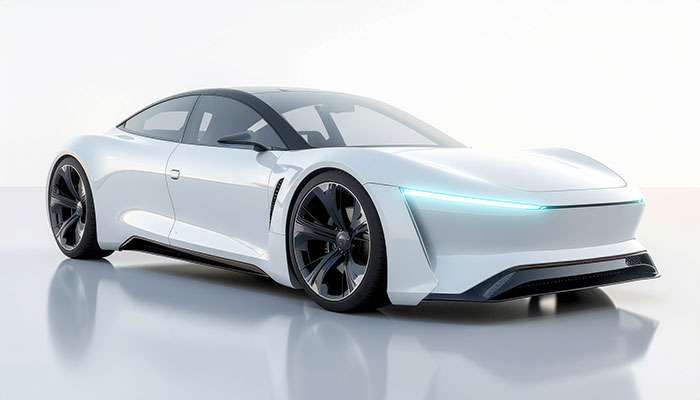
The fascination with custom wheels goes far beyond simple appearance upgrades. The emotional connection drivers develop with these components reveals something deeper about personal identity and automotive culture.
Custom wheels function as powerful status symbols that instantly communicate success and personal achievement. Much like designer accessories, high-end aftermarket wheels signal financial capability and refined taste. Car enthusiasts often treat premium wheels as automotive "bling," showcasing their investment in quality and style.
Vehicle communities develop distinct identities around wheel choices, creating clear social boundaries between different groups. These preferences become central to group membership and acceptance. One enthusiast captured this perfectly: "If you want to meet haters, just jump into any Facebook group and post a pic of a car that doesn't belong".
Your vehicle serves as a canvas for self-expression, and studies show that personalizing possessions contributes significantly to mental well-being and social connection. Custom wheels, with their high visibility and endless design options, offer an ideal way to showcase personality and values.
Wheel choices communicate distinct messages about their owners. Intricate spoke patterns, bold finishes, and unique designs all tell different stories. Some drivers choose understated elegance, while others prefer attention-grabbing statements. Each selection reveals something meaningful about character and priorities.
The automotive world celebrates individuality within community settings. Custom wheel designs play a crucial role in defining a vehicle's overall character and appeal. This passion for personalization stems from our desire to stand out while connecting with like-minded enthusiasts.
At car shows and gatherings, custom wheels become conversation starters that forge lasting friendships between strangers who share similar passions. Car culture balances uniqueness with community perfectly. As one enthusiast explained: "Car culture to me is a community, a network of people who love vehicles... we're all just car people".
The psychology behind wheel obsession ultimately connects to our fundamental need for both individual expression and social belonging.
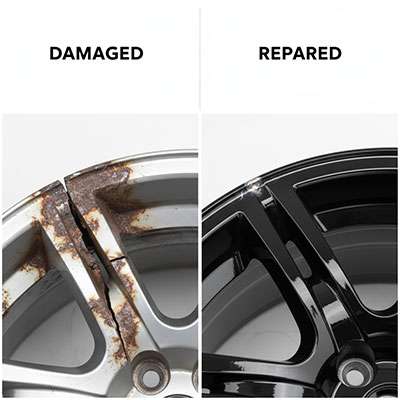
The best custom wheels don't last forever. Knowing when to replace yours can save you from expensive repairs and dangerous driving situations.
Original Equipment Manufacturer (OEM) rims come straight from your vehicle's factory, specifically engineered for your exact make, model, and year. These factory wheels undergo rigorous testing, including x-ray inspections and immersion tests. Custom aftermarket wheels offer much more variety in style, weight, and performance characteristics. While many automakers claim their OEM wheels should last your vehicle's entire lifespan, custom options provide greater personalization possibilities across different price ranges.
Your vehicle tells you when wheels need attention. Physical damage like cracks, bends, or dents prevents tires from seating properly, potentially causing dangerous blowouts. A steering wheel that vibrates between 55-70 mph usually indicates wheel damage. Difficulty maintaining tire pressure also signals problems.
Listen for unusual noises too. Clicking or clunking sounds often mean damaged components within the wheel assembly that need immediate attention.
Some driving environments destroy wheels much quicker than normal use. Road salt corrodes wheel materials, especially around lug nut seats and where tires meet the rim. Hitting potholes repeatedly, taking speedbumps too fast, or encountering road debris can bend or crack even high-quality wheels.
Drivers who regularly tackle rough terrain need to upgrade for practical reasons, not just looks. Equipping your vehicle with all-terrain tires and durable rims helps withstand these challenging conditions and prevents costly replacements.
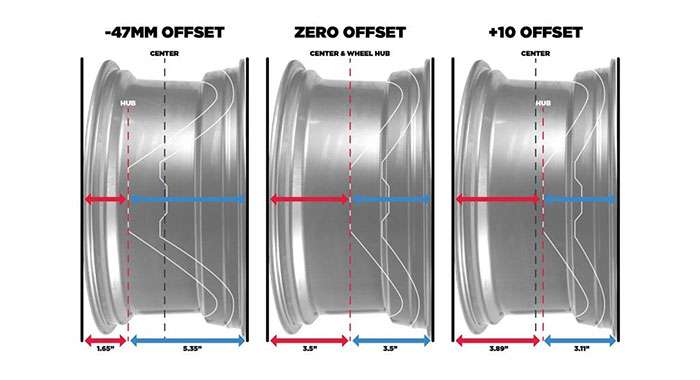
Selecting the right rims requires more than just choosing a style you like. Understanding key technical specifications can prevent costly mistakes and ensure your new wheels deliver the performance and fitment you expect.
Getting proper fitment starts with the bolt pattern—expressed as two numbers (like 5x100) indicating the number of lug holes and the diameter of their imaginary circle in millimeters. Mismatched patterns make installation impossible without adapters.
Offset determines how your wheels sit relative to your vehicle. This measurement—the distance between the wheel's centerline and mounting surface—affects both handling and clearance. Positive offset tucks wheels under the vehicle, while negative offset creates a wider stance but may stress hub bearings. Too much backspacing can cause rubbing against suspension components or bodywork.
The center bore must fit over your vehicle's hub properly. Hub-centric wheels require exact fit against the hub, while lug-centric wheels use lug nuts for centering.
Wheel size and weight directly affect your daily driving experience. Larger wheels add unsprung weight, forcing your engine to work harder and reducing fuel efficiency. Heavier rims also decrease acceleration and can make steering less responsive.
Rim size significantly influences ride quality. Larger rims typically require low-profile tires with stiffer sidewalls, improving cornering but creating a harsher ride. Smaller wheels with higher-profile tires provide better cushioning over bumps and road imperfections.
New OEM wheels offer perfect fitment and typically come with warranties. Aftermarket options provide more variety in style and performance but require careful compatibility checking.
Used rims present substantial savings, particularly for winter sets or temporary use. Quality varies widely—from near-perfect (Grade A) with minor scratches to heavily used (Grade C) with numerous blemishes. We offer rims at discount prices from reliable sources to ensure proper condition and fitment.
Remanufactured wheels offer a middle ground—these are used wheels that have been refinished to appear new, often at lower costs than new wheels.
Professional installation ensures proper mounting and torque specification, preventing issues like vibration, uneven tire wear, and compromised safety. DIY installation risks misalignment, improper lug nut tightening, and potential damage to both rims and vehicle.
Many wheel manufacturers specify professional installation in their warranty terms—choosing DIY could void your coverage. Professional shops often provide their own service warranties, giving you double protection for your investment.
Custom wheels represent a smart investment that goes far beyond appearance. The right set of wheels can transform your vehicle's performance, handling, and style while reflecting your personal taste and driving needs.
Car enthusiasts understand that wheel choices communicate something important about their priorities and personality. Whether you're seeking enhanced performance, improved durability, or simply want to make your vehicle stand out, custom wheels offer the perfect opportunity to upgrade both function and style.
When you're ready to upgrade, remember that proper fitment matters more than flashy looks. Consider factors like bolt patterns, offset measurements, and how wheel size will affect your daily driving experience. Larger wheels might look impressive, but they can impact ride comfort and fuel economy during regular use.
At Performance Plus Tire, we understand that choosing the right wheels requires expert guidance and quality products. Our huge selection of custom wheels at the lowest prices ensures you'll find the perfect match for your vehicle and budget. We offer wheels that are designed to provide both style and performance, so you can upgrade your ride with confidence.
The passion for custom wheels ultimately reflects the desire to blend practical benefits with personal expression. Your vehicle represents a significant investment, and quality wheels can enhance both its performance and value. When you see someone admiring great-looking wheels, you'll know they're recognizing the smart choices that connect performance with personality.
Ready to upgrade your ride? Our expert team is ready to help you find the perfect wheels that deliver both the look you want and the performance you need.
Understanding why people obsess over rims reveals a fascinating blend of practical performance benefits and deep psychological motivations that drive car culture.
• Rims aren't just esthetic—reducing wheel weight by 12 pounds per corner improves 0-60 acceleration by 0.29 seconds • Custom rims serve as powerful status symbols and self-expression tools, functioning like automotive "bling" in car communities • Proper fitment matters more than looks—wrong bolt patterns, offset, or center bore can cause safety issues and void warranties • Larger rims improve handling and load capacity but reduce fuel economy and ride comfort due to increased unsprung weight • Professional installation is essential for safety and warranty protection, preventing vibration and premature tire wear
The rim obsession ultimately reflects our human need to balance functionality with personal identity. Your wheel choice communicates who you are while potentially enhancing your vehicle's performance—making rims one of the most meaningful modifications in automotive culture.
Car enthusiasts value rims for both esthetic and performance reasons. Custom rims allow for personalization and self-expression, while also potentially improving handling, acceleration, and braking through reduced unsprung weight. The right set of rims can dramatically transform a vehicle's appearance and driving dynamics.
Rims play a crucial role in a car's performance. Lighter rims reduce unsprung weight, improving acceleration, braking, and handling. Larger rims can accommodate wider tires for better grip, while smaller rims with higher-profile tires may provide a smoother ride. The right rim choice can significantly enhance a vehicle's overall driving characteristics.
You should consider replacing your car's rims if you notice physical damage like cracks or bends, experience steering wheel vibrations, have difficulty maintaining tire pressure, or hear unusual noises from the wheels. Additionally, if you frequently drive in harsh conditions or want to improve your vehicle's performance or appearance, new rims might be a worthwhile investment.
When selecting new rims, consider factors such as proper fitment (bolt pattern, offset, and center bore), impact on fuel economy and ride comfort, and your driving needs. It's also important to weigh the pros and cons of new versus used rims and ensure professional installation to maintain safety and warranty coverage.
In car culture, rims serve as powerful status symbols and tools for self-expression. They allow owners to showcase their personal style and often signal membership in specific automotive communities. The choice of rims can reflect an individual's values, from prioritizing performance to embracing a particular esthetic, making them an integral part of automotive enthusiast culture.